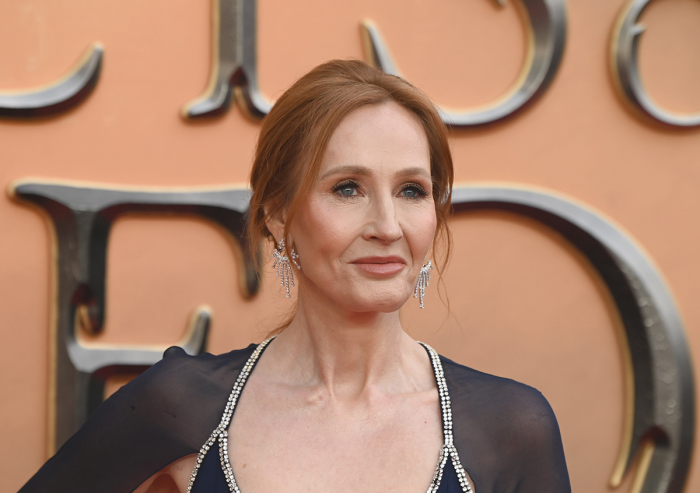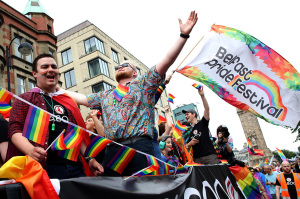JK Rowling donates to legal challenge seeking to uphold biological definition of sex

A women's rights group is praising Harry Potter author J.K. Rowling for donating to its fundraiser as the group works to preserve the traditional definition of the term "sex" in United Kingdom law.
In a post on X Friday, the group For Women Scotland announced a fundraiser on the crowdfunding platform CrowdJustice. The effort comes as the group seeks to convince the U.K.'s Supreme Court to rule that the definition of sex in the Equality Act only applies to biological sex and not gender identity. For Women Scotland characterizes itself as an organization established to "protect and strengthen women's rights."
As of Thursday morning, the crowdfunding campaign had raised 142,100 euros, equivalent to $153,916.33. This amounts to nearly double For Women Scotland's initial goal of 75,000 euros, which equates to $81,121.03. The group estimates that its legal expenses associated with the appeal will amount to 200,000 euros, equivalent to $216,322.76. It has set that figure as its final fundraising goal. A total of 2,443 people have donated to the campaign as of Thursday morning.
In a subsequent X post Friday, For Women Scotland thanked "all who are making this challenge possible - especially @jkrowling."
According to The Daily Mail, Rowling donated £70,000 (about $88,000) to the crowdfunding effort.
"You know how proud I am to know you," Rowling reportedly wrote to the group in a donation message. "Thank you for all your hard work and perseverance. This is truly a historic case."
Rowling became an outspoken critic of efforts to expand the definition of the word "women" to include trans-identified biological men, as well as the use of phrases such as "people who menstruate" to describe women.
For Women Scotland is challenging the statutory definition of "woman" in the Gender Representation on Public Boards (Scotland) Act 2018. The establishment of the fundraiser came on the same day that the Court of Session Inner House granted For Women Scotland's request to appeal its decision to the U.K. Supreme Court.
According to the Statutory Guidance at issue, "In terms of section 9(1) of the Gender Recognition Act 2004, where a full gender recognition certificate has been issued to a person that their acquired gender is female, the person's sex is that of a woman, and where a full gender recognition certificate has been issued to a person that their acquired gender is male, the person's sex becomes that of a man."
The advocacy organization elaborated on the implications of the Scotland Inner House of Court Session's ruling upholding the Statutory Guidance.
"The court decision stated that a person with a Gender Recognition Certificate (GRC) in their acquired gender has the protected characteristic of gender reassignment," the fundraiser explained. "Separately, they also possess the protected characteristic of sex according to the terms of their GRC and have a presumptive right to access the single-sex services of their acquired gender."
"The court concluded that a [biologically male] person with a GRC in the female gender comes within the definition of 'woman' for the purposes of the Equality Act, and therefore the revised Statutory Guidance issued in respect of the Gender Representation on Public Boards (Scotland) Act 2018 is lawful," the fundraiser asserted.
For Women Scotland clarified that "the protected characteristic of 'woman' in the Equality Act still includes some males."
For Women Scotland believes that the Statutory Guidance upheld by the Scottish court runs afoul of the intent of the Equality Act 2010.
"The court's new GRC inclusive definition of 'woman' cannot be used consistently throughout the Equality Act, and it was forced to revert to a biological understanding of 'pregnant women' to ensure females with a GRC (stating they are men) are still able to access pregnancy and maternity rights," the group reports.
"We believe the Equality Act was drafted on the basis of the ordinary, common law understanding of the biological differences between the two sexes. The protected characteristic of 'sex' in the Equality Act is defined as a reference to a man or a woman, where man means 'a male of any age' and woman means 'a female of any age.' We think it is quite clear that these are distinct and separate groups and that 'woman' is not a mixed-sex category," they added.
Ryan Foley is a reporter for The Christian Post. He can be reached at: ryan.foley@christianpost.com




























